First-year students have had one on-campus lecture a week since September: “We’ve considered dropping out”
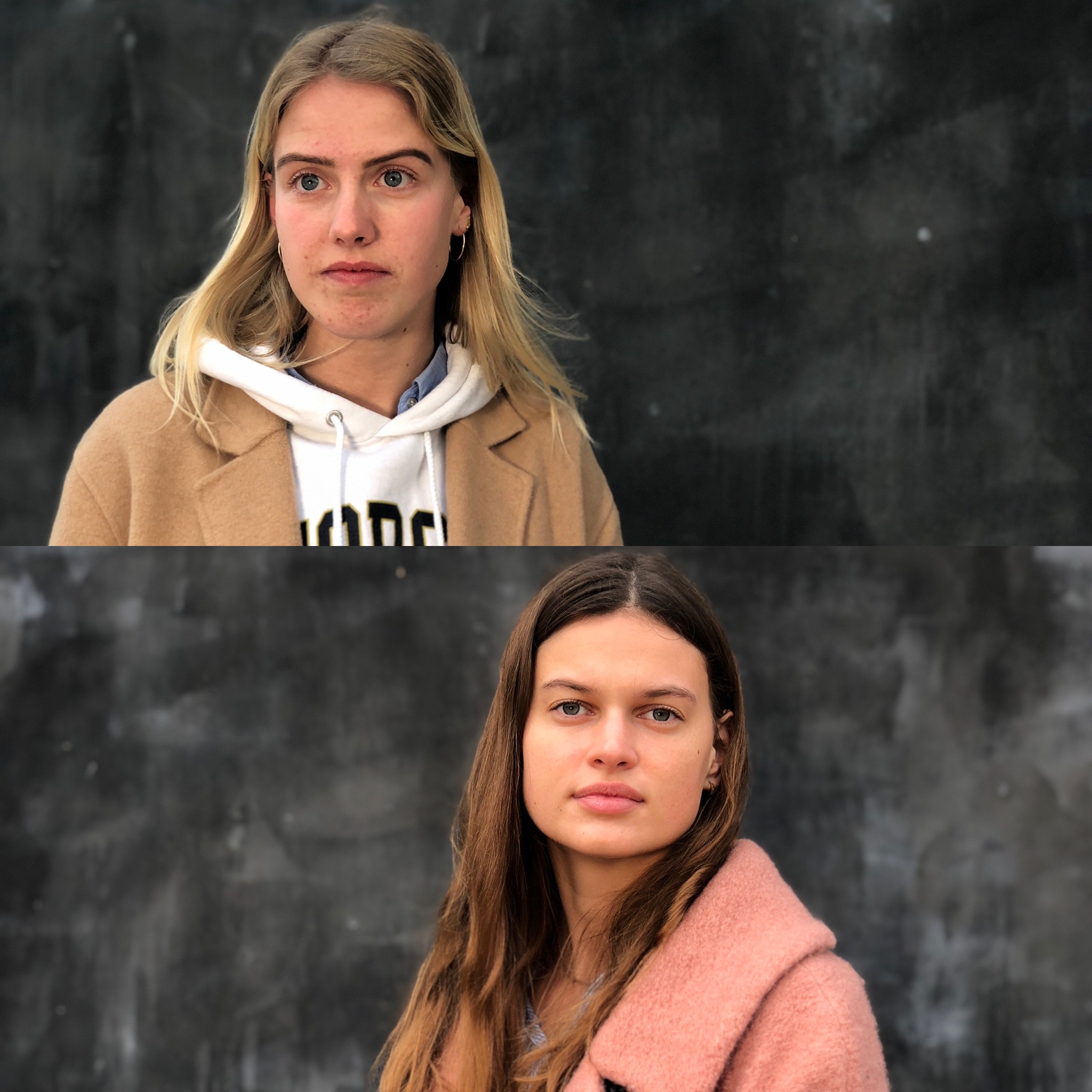
Signe Helms and Anna Selma Wentzer, first-year students from the IBP program, are feeling the consequences of not having more than one on-campus lecture a week. (Photo: Anne M. Lykkegaard)
Signe Helms and Anna Selma Wentzer share the consequences of not having more than one on-campus lecture a week on average. Seventy-three of their fellow students from the IBP program share the same frustrating feeling of being overlooked by CBS.
When Signe Helms enrolled on the BSc in International Business and Politics (IBP) program, she felt very happy and motivated for starting the school year. The program combines all her favorite topics, and she was excited to start studying.
She knew beforehand that the semester would be different. About 50 percent or a bit more of the teaching activities would be online, and she could live with that.
“When I first saw the teaching plan, I was astonished. Almost all the teaching activities were online,” she explains.
At the beginning of November, looking back, the first-year students from IBP have had an average of one physical lecture a week since semester start, according to Signe Helms. And the consequences have been greater than expected.
“I have never felt so demotivated before, and I know that I’m not the only one who feels this way. I want to read up for the online classes, but the current ways of schooling don’t motivate me in doing so. Furthermore, I’m not comfortable enough to participate actively in the Zoom meetings where I don’t feel like I know any of the 70 people watching the screen at the other end,” she says and continues:
“I’ve considered dropping out several times, although what I’m studying truly interests me.”
Anna Selma Wentzer, another first-year student on the IBP program, recognizes Signe Helms’ frustrations.
“Every time Signe and I have talked, we have talked about dropping out. And it may seem like an exaggeration, but I really have considered dropping out and returning in a year’s time instead. Now that I have come all this way, I have decided to stay, but the program is not at all what I had expected,” she says.
Anna Selma Wentzer and Signe Helms are not alone with their experiences. Altogether, 73 of their about 120 classmates have expressed their support for an opinion piece Signe Helms has written about the lack of physical on-campus teaching. The opinion piece called ‘CBS student: We barely know our fellow students, as we have only had online teaching’, was published in the Danish newspaper Information on November 4.
“The fact that 73 of my fellow students have expressed their support for my post means a great deal to me. It shows that more than just one or a few students are left feeling their motivation is at zero,” she says and continues:
“On the contrary, the fact that so many of my fellow students support my view shows that we all want improvement. Together, we are in a strong position and we wish to be heard and taken seriously as first-year students. Moreover, it shows that our program hungers for a stronger feeling of community, and I hope we can get a little closer to that goal now.”
On-campus teaching should be possible
This semester, the teaching principles dictate that lectures with more than 100 students must take place online. The IBP program has three courses, and all the main lectures have been moved online. This leaves the so-called exercise classes, where the class of 120 students is divided into groups of 30. The groups meet on campus for two to three hours to do activities that do not work well online.
But according to Signe Helms, many of the exercise classes have also been moved online – sometimes just the day before they were supposed to take place on campus.
“I think we have even had one or two weeks with no teaching on campus at all,” she says.
If I had known beforehand that the semester would be based on so much online teaching, I would have just stayed home in Randers, where I’m from
Anna Selma Wentzer
It is up to the lecturers to decide if they feel comfortable about teaching on campus, and Anna Selma Wentzer and Signe Helms both respect if, for various reasons, teachers do not feel safe about being present on campus, or their doctors have ordered them not to due to their health.
However, they both believe it is possible to complete the teaching activities on campus under the current restrictions.
“I think one can argue that teaching on campus can be done with the restrictions in place. I mean, the restrictions make it possible to keep campus open and are the reason why the authorities have not closed down the educational institutions. Teachers in primary schools and high schools teach every day,” says Anna Selma Wentzer and continues:
“One solution for having more on-campus teaching could be to have one third of the class on campus, and two thirds watching the live stream from home. That would both make it possible to have fewer students on campus, and for students who don’t feel safe showing up physically to participate.”
“I will do anything to get more on-campus teaching”
And more on-campus teaching is possible. According to the two first-year students, they know of fellow students from other CBS programs and other universities, such as the University of Copenhagen, Aalborg University and Aarhus University, where the first-year students have much more on-campus teaching.
I have never felt so demotivated before, and I know that I’m not the only one who feels this way
Signe Helms
“My friends who are first-year students as well at Aalborg and Aarhus University have had almost 100 percent on-campus teaching, and I know of friends studying law at the University of Copenhagen who have had much more on-campus teaching, so I know it’s possible. So why isn’t it possible for us?” asks Signe Helms.
The few on-campus classes the students have had so far have been a real treat in terms of learning, explain the two first-year students.
“Being present for on-campus teaching is much more motivating. I want to go in depth with the texts, as I know I’ll be able to discuss the content with my classmates and even ask the teacher questions,” says Signe Helms.
Anna Selma Wentzer adds:
“It’s so much better being on-campus. I get to see my teachers, I feel like contributing and engaging in the classes, and the teachers can see if we look confused about something,” she says.
Both Signe Helms and Anna Selma Wentzer have reached out to their study board about the matter, as well as sending a letter of concern pinpointing the issues and aspects that can be improved and asking for an explanation for the current situation. However, they do not feel satisfied with the explanations they have received.
“We have been told that it’s usually something to do with CBS’ administration and their scheduling, but all I want is a logical reason for why they have delegated us so little time on campus compared to other universities and program at CBS,” says Signe Helms, who is considering running for a position on her study board, as she wants to make sure next semester will not be a carbon copy of the current one.
“I will do everything I can to get more on-campus teaching. I believe it’s always possible to have more than a couple of hours a week,” says Signe Helms.
“I don’t even have 10 friends”
Both Signe Helms and Anna Selma Wentzer are from Jutland, so coming all the way to Copenhagen has in itself been overwhelming, as they have had to find accommodation, get to know CBS and make friends.
The last part has been more than difficult, explains Anna Selma Wentzer.
“Right now, you can see a maximum of 10 people at one time. That’s fine with me, I don’t even know 10 people. I only know the people from my program slightly, so I don’t just call them and ask if they want to hang out,” she says and continues:
“If I had known beforehand that the semester would be based on so much online teaching, I would have just stayed home in Randers, where I’m from, and done my courses from there. It would also have saved me a lot of money.”
Signe Helms explains that she and her fellow students have tried to meet up, but with limited space both at home and on campus, it has been difficult to get to know one another.
“It’s almost impossible to book a group room or a spot at CBS. Somehow it feels like CBS is discouraging us more than encouraging us,” she says.
On the question of whether the two students cannot just work things out online, Anna Selma Wentzer explains:
“It’s a poor substitute to have an online study group going; it requires a lot of planning, we constantly interrupt one another as it’s difficult to ‘feel’ the flow of the conversation, and then there’s always trouble with either wifi or a device,” she says and adds that her appointed study group has been renamed a ‘support group’, as they more often help each other to figure out where to meet up online and find texts.
“I know that as a university student you have much more responsibility. I have to figure out how to attend lectures, study and hand in assignments, and meet up with my fellow students. What’s different is that I don’t have a support structure, in other words campus, to help me do all of these things. I have to do everything myself, and that’s tough,” she says.



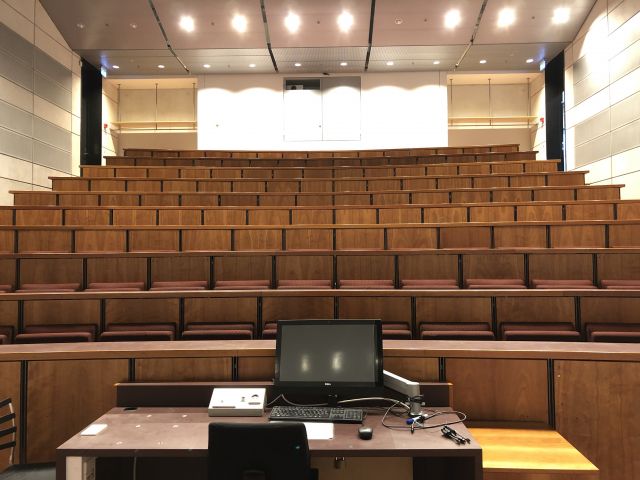
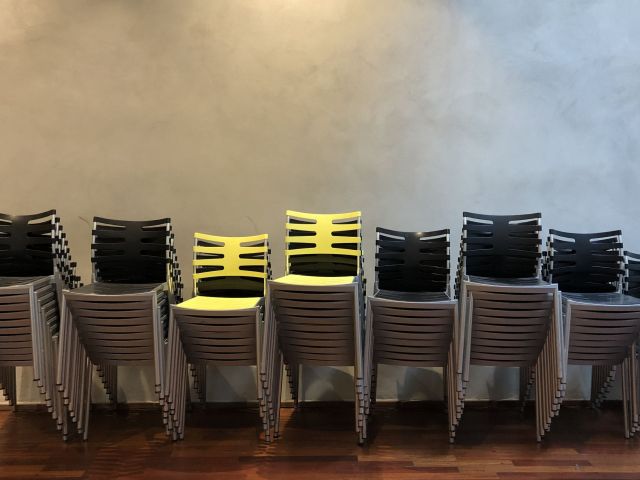
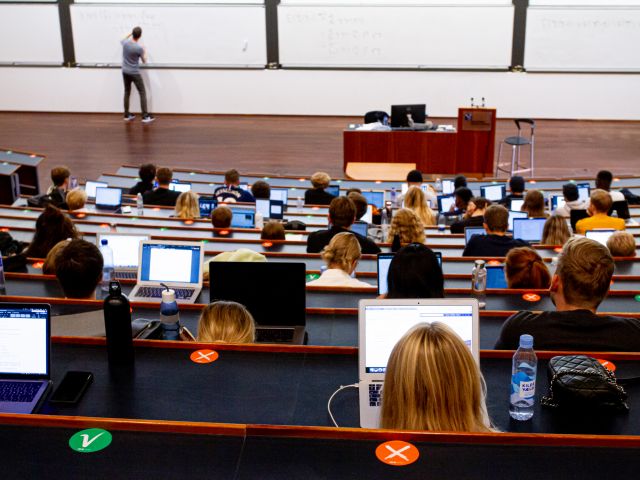
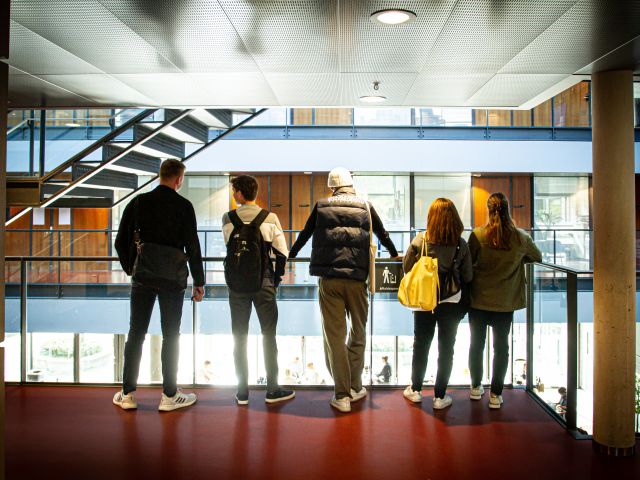



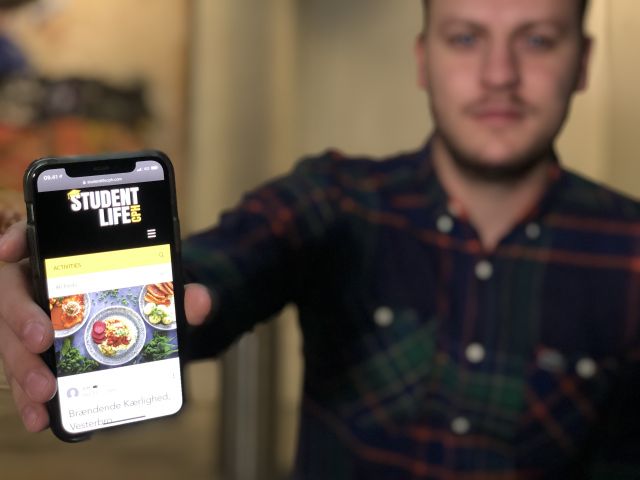




























































































































Comments